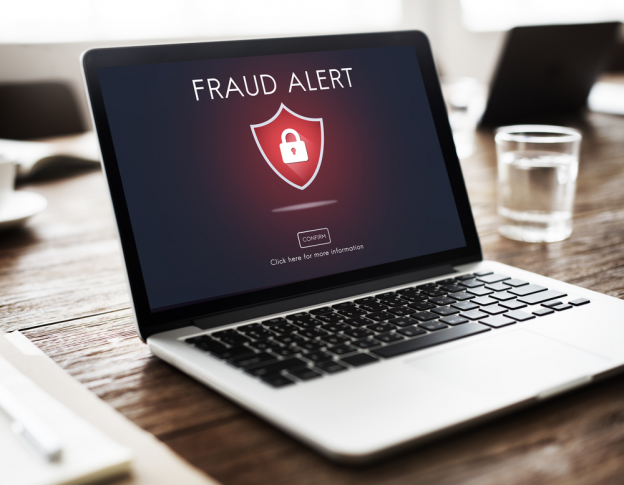Table of Contents
In 2021 cybercrime was on the rise. This trend, unfortunately, is likely to continue through this year.
Cybersecurity threats come in many forms, but digital scams are the most common. Rather than hackers accessing your network directly, it’s more common for your information to fall into the wrong hands due to fraudsters convincing users to willingly give up private information.
Here are some tips to help avoid falling victim to even the most convincing digital scams.
Scrutinize E-Mails Closely
One of the most common types of digital scams is phishing. In a phishing scam, the fraudster will send an e-mail posing as someone else, usually a company you do business with, and claim there is an urgent matter. This e-mail will have a link requesting you to click it to perform some urgent action, at which point you’ll be asked to enter personal information.
This e-mail may look legitimate, but there are red flags to look for. First, look at the “from” e-mail address to see if it seems off. If it’s a suspicious e-mail address, you can be confident this is a scam. Even if seems to be legitimate, though, this can’t rule out a phishing scam as e-mail addresses can be spoofed.
Many times, these phishing e-mails come from cybercriminals who live outside of your home country, so they often have many typos and grammatical errors. This is a big indicator of a phishing e-mail.
Finally, even if it is a legitimate e-mail, get in the habit of going into your web browser and directly navigating to your bank’s website, for example, to login when you receive an e-mail. It’s important to never click a link in an e-mail that is requesting private information, unless you’ve expressly requested a password reset link, for example.
Also read: Web Application Security Using DAST
Read URLs Carefully
There are many fake shopping websites that are designed to make you believe they are a well-known brand. For example, maybe you get a message on social media with a link to a product on Walmart … except it isn’t Walmart. The URL may instead be “www.wallmart.com”, and the website may be designed to look identical to the official Walmart website. If you aren’t looking closely, it’s easy to gloss over the extra “L” in the web address.
Convincing you to buy a product by posing as a major retailer is one way that scammers can get their hands on your credit card number.
Ignore Tech Support Pop-Ups
One popular scam going around is the pop-up claiming that your computer is infected with malware. These pop-ups will then request that you take some type of action to clean your system. This may be a request to download their application to remove the malware, which is in fact a means for them to access your system remotely. Alternatively, they may claim they can clean your system if you pay a fee.
The bottom line: don’t trust pop-ups that claim there is an issue with your computer. Even if there was, how would they know without scanning your system without your permission?
Invest in Identity Theft Protection
One way to protect your privacy is with identity theft protection services from LifeLock. These services offer protection on two fronts. First, they reduce junk mail, which helps to catch potential phishing scams before they reach you. Second, they monitor and alert you of any suspicious activity regarding your Social Security number, credit profile or financial accounts.
This two-pronged approach helps reduce the risk of identity theft, but if it does occur, you’ll be notified as soon as possible so the problem can be addressed before additional damage is done. Right now, you can take advantage of these special offers on LifeLock for a great all-around identity theft protection solution.
Key Takeaway: Always Be Alert
Whether it’s a phishing scam, tech support pop-up or a phony shopping website, you’re bound to come across some digital scams. These are a means to steal your personal information, which can result in damaging identity theft. Always be on the lookout for scams and consider investing in identity theft protection services for additional peace of mind.



